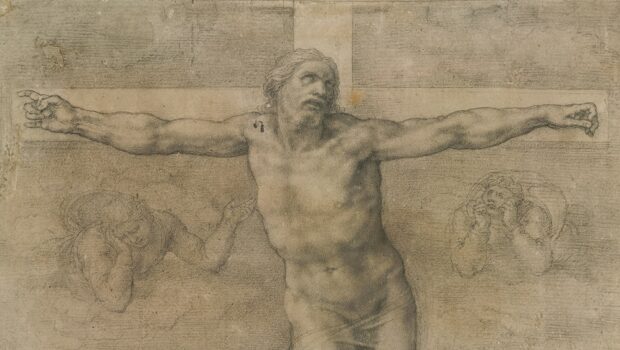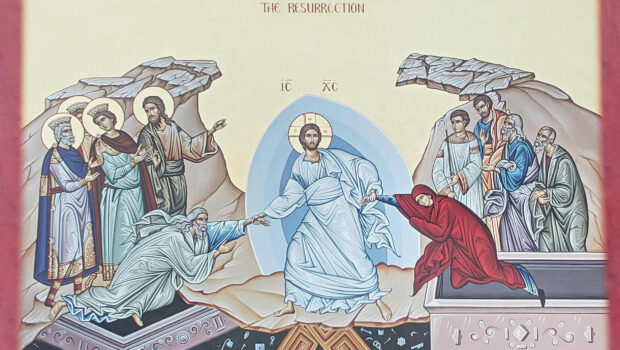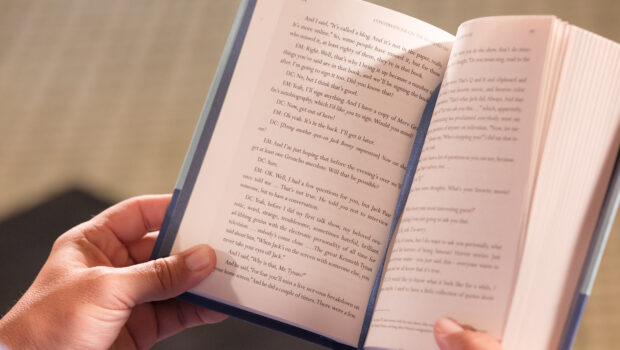Have You Really Not Read Chance or the Dance?
Written by Eric Metaxas. This article was originally published in the National Review on May 5, 2018; to read the article on their website, click here.
Once upon a time — when I was a young man — I fell as it were under a spell. Truth be told, I did not so much fall under it as I was buoyed up by it. It was not the standard fairy-tale ensorcelling that pushes upright humans downward toward four-footed bestiality, but was rather the magnificent opposite of such. It was the kind of spell that turns straw into gold, that ennobles. In fact, it was very much as though I had been carried from a low neighborhood of mud and brindle hair to the very ramparts of heaven.
This took place 30 summers ago, when I bowed my knee to that Sovereign of Sovereigns, whose coming is prophesied in the ancient Scriptures of Israel. Truth be told, this new allegiance was the best thing that ever happened to me, which is itself a deep understatement. Yet this tremendous boon came with some difficulties too. For one thing, how was I to explain this dramatic change of situation to my “educated” and “civilized” friends who had not been similarly entranced, and who thought my newfound joy something barbaric, if not as undeniable evidence of my having become non compos mentis?
I myself wondered about a few things too. For one thing, precisely how was I to reconcile my newfound faith with certain aspects of my previous life? For example, must I leave behind forever my love of words and ideas and meaning? Was this new world of serious Christian faith compatible with an ardor for classical and even “pagan” literature? With puns and poesy? I seemed to have evidence that it was not; and so I was troubled.
Then someone on a white steed hurriedly rode toward me — his name is Tibor Lengyel, but we must not name him publicly here — and he dramatically pointed me toward a book titled Chance or the Dance? It was by an author named Thomas Howard. That book I did find, did ope, and did read. And my life was then and forever changed. It was as though I had drunk a silvery draught of water from the very Well-at-the-End-of-the-World itself. So it is a fact that reading that extraordinary book was for me like a miracle — and was not merely like a miracle but really was a miracle. And the book itself is a miracle still, which is why I am raving about it here. But how to describe it?
Let us imagine that C. S. Lewis had lived well beyond 1963 and had written many more essays and poems and books. Imagine that six years after we thought he had died he had in fact produced one of his most beautiful and important books, titled Chance or the Dance? In fact, anyone who loves C. S. Lewis and who has not read Chance or the Dance? is almost missing a new book in the Lewis oeuvre. It is simply that good and that reminiscent of the Lewisian world. There are differences between Lewis and Howard, to be sure. For one thing Howard’s prose style is even better than Lewis’s. I hope that everyone can at least agree that it is more beautiful — even sumptuous — and I have no doubt that old Jack would himself agree. (By the way, as a graduate student in England, Tom Howard visited the great Lewis at his home in Oxfordshire and spent an afternoon with him there, but that’s another story.)
Unlike most books, the book of which I am here speaking is virtually impossible to categorize. What exactly is it? For one thing, it is a manifesto that asserts the grand old medieval Christian worldview over and above the current secularist one. You know that latter one, don’t you? It’s the one that is so depleted and deflated and paralyzingly depressing that we hardly ever really think about it, because it’s simply too much to bear. So we just seem to accept it, as though it simply described the godforsaken way things are — and accept too that we must nonetheless soldier on. But what toward? Toward the dust of death. But this book defies that very basest of all ideas. It flies the indefatigably and multiply bright standard of Meaning. And Truth and Beauty and Goodness. It is bracing and inspiring — a kind of call to arms, like the staccato blast of a bouquet of golden trumpets. Who can ignore it?




